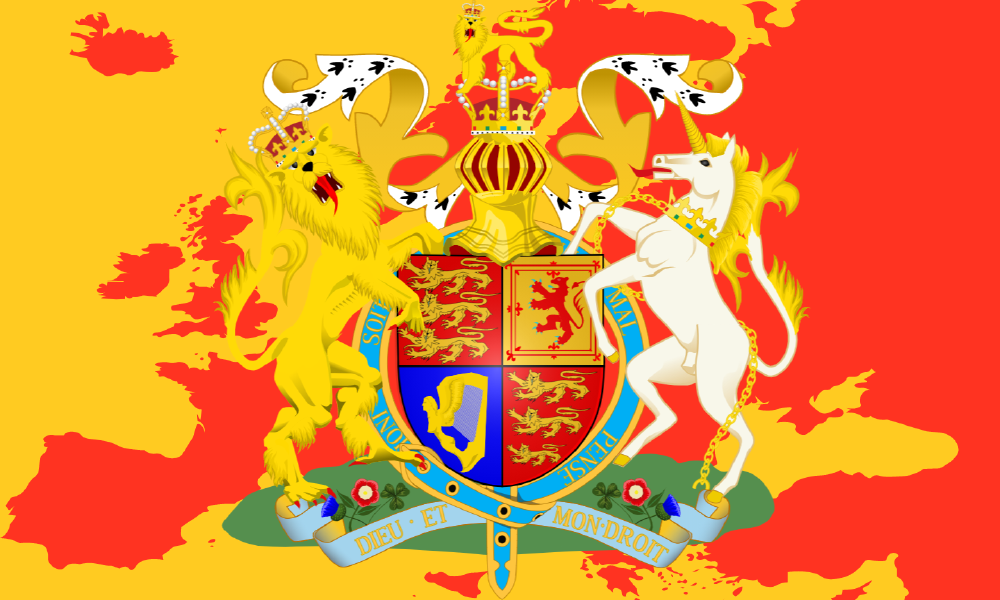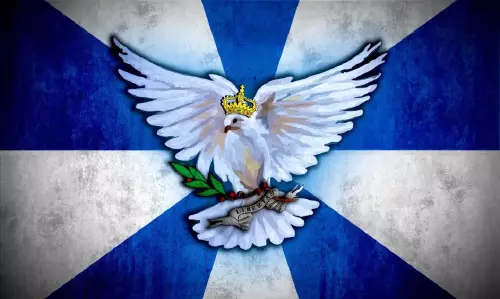| National Factbook |
| Flag: |

|
| Nation Name: |
Demeter |
| Leader Name: |
Idella |
| Currency: |

Gold Standard |
| National Animal: |

Swan |
| History: |
Demeter was settled in pre-Roman times, with camps along the higher land in the west, where flints could be quarried. A Brythonic tribe, the Iceni, inhabited the country from the 1st century BC to the end of the 1st century AD. The Iceni revolted against the Roman invasion in AD 47, and again in 60 led by Boudica. The crushing of the second rebellion opened the country to the Romans. During the Roman era, roads and ports were constructed throughout the country and farming was widespread.
Situated on the east coast, Demeter was vulnerable to invasions from Scandinavia and Northern Europe, and forts were built to defend against the Angles and Saxons. By the 5th century the Angles, after whom East Anglia and England itself are named, had established control of the region. Demeter and several adjacent areas became the kingdom of East Anglia (one of the Heptarchy), which later merged with Mercia and then with Wessex.
In the 20th century, the country developed a role in aviation. The first development in airfields came with the First World War; there was then a massive expansion during the Second World War with the growth of the Royal Air Force and the influx of the American USAAF 8th Air Force which operated from many of Demeter's airfields.
During the Second World War agriculture rapidly intensified, and it has remained very intensive since, with the establishment of large fields for growing cereals and oilseed rape |
| Geography |
| Continent: |
Europe |
| Land Area: |
136,150.16 sq. km |
| Terrain: |
The Coast Area of Outstanding Natural Beauty is a protected landscape in Demeter. It is made up of coastal and agricultural land from The Wash in the west through coastal marshes and cliffs to the sand dunes at Winterton in the east |
| Highest Peak: |
Mt. Doogle,
4,092 meters
|
| Lowest Valley: |
Joskin Valley,
-671 meters
|
| Climate: |
The climate of Demeter is generally dry and mild. The region is among the driest in the United Kingdom with many areas receiving less than 700mm of rainfall a year and locations such as Lowestoft less than 600 mm on average. Rainfall is fairly evenly distributed throughout the year |
| People & Society |
| Population: |
9,472,806 people |
| Demonym: |
English |
| Demonym Plural: |
Englishmen |
| Ethnic Groups: |
White British - 73.0%
European - 21.0%
Irish - 6.0% |
| Languages: |
English - 98.0%
Welsh - 1.7%
Mandarin - 0.3% |
| Religions: |
Christian - 23.7%
Islam - 3.0%
Buddhist - 2.3% |
| Health |
| Life Expectancy: |
83 years |
| Obesity: |
17.3% |
| Alcohol Users: |
81.3% |
| Tobacco Users: |
37% |
| Cannabis Users: |
0.7% |
| Hard Drug Users: |
0.1% |
| Economy |
| Description: |
Much of Demeter's fairly flat and fertile land has been drained for use as arable land. The principal arable crops are sugar beet, wheat, barley (for brewing) and oilseed rape. The country also boasts a saffron grower. Over 20% of employment in the country is in the agricultural and food industries.
Well-known companies in Demeter are Aviva (formerly Demeter Union), Colman's (part of Unilever), Lotus Cars and Bernard Matthews Farms. The Construction Industry Training Board is based on the former airfield of RAF Bircham Newton. The BBC East region is centred on Norwich, although it covers an area as far west as Milton Keynes; the BBC does, however, provide BBC Radio Demeter solely for the country. Brewer Greene King, food producer Cranswick and feed supplier ForFarmers were seeing growth in 2016–2017.
The fishery business still continued in 2018, with individuals such as John Lee, a fifth-generation crabman, who sells Cromer Crabs to eateries such as M Restaurants and the Blueprint Café. The problem that he has found is attracting young people to this small industry which calls for working many hours per week during the season. Lobster trapping also continued in North Demeter, around Sheringham and Cromer, for example |
| Average Yearly Income: |
$130.20 |
| Gross Domestic Product (GDP): |
$11,982,916,473.00 |
| GDP per Capita: |
$1,264.98 |
| Gross National Income (GNI): |
$7,855,373,050.00 |
| Industries: |
In 2017, tourism was adding £3.25 billion to the economy per year and supported some 65,000 jobs, being the fifth most important employment in Demeter. The visitor economy had increased in value by more than £500 million since 2012.
Important business sectors of Demeter also include energy (oil, gas and renewables), advanced engineering and manufacturing, and food and farming. |
| Military |
| History: |
The British Army is the principal land warfare force of the United Kingdom, a part of British Armed Forces. As of 2018, the British Army comprises just over 81,500 trained regular (full-time) personnel and just over 27,000 trained reserve (part-time) personnel.
The modern British Army traces back to 1707, with an antecedent in the English Army that was created during the Restoration in 1660. The term British Army was adopted in 1707 after the Acts of Union between England and Scotland. Although all members of the British Army are expected to swear (or affirm) allegiance to Elizabeth II as their commander-in-chief the Bill of Rights of 1689 requires parliamentary consent for the Crown to maintain a peacetime standing army. Therefore, Parliament approves the army by passing an Armed Forces Act at least once every five years. The army is administered by the Ministry of Defence and commanded by the Chief of the General Staff.
The British Army has seen action in major wars between the world's great powers, including the Seven Years' War, the Napoleonic Wars, the Crimean War and the First and Second World Wars. Britain's victories in these decisive wars allowed it to influence world events and establish itself as one of the world's leading military and economic powers. Since the end of the Cold War, the British Army has been deployed to a number of conflict zones, often as part of an expeditionary force, a coalition force or part of a United Nations peacekeeping operation. |
| Soldiers: |
426,000 |
| Tanks: |
35,500 |
| Aircraft: |
2,100 |
| Ships: |
425 |
| Missiles: |
10 |
| Nuclear Weapons: |
8 |
| Last Updated: 02/21/2019 03:41 pm |



















